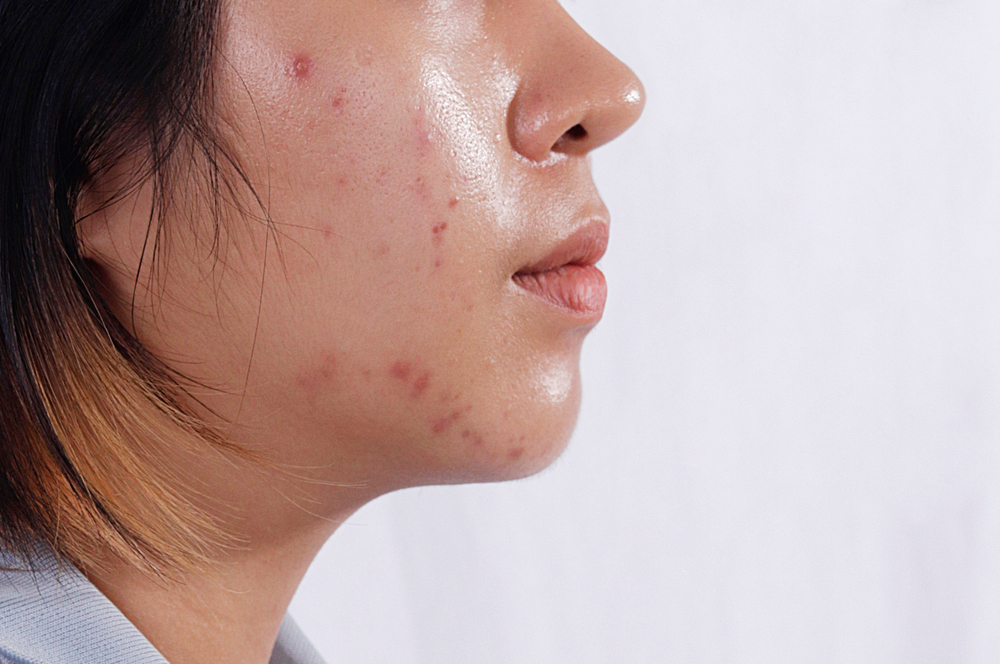If you have oily skin, curating a skin care routine that controls shine is probably top of mind. The goal is to find products packed with key ingredients that prevent excess oil production and keep those pesky breakouts at bay. But what are the best ingredients for oily skin?
If you're not quite sure which ingredients to prioritize and which to avoid, you've come to the right place. Read on for a breakdown of the causes of oily skin and what you should—and shouldn't—be using on your face to achieve a matte look.
What Causes Oily Skin?
According to the American Academy of Dermatology (AAD), oily skin can happen for several reasons. The first thing to consider is genetics; some people are born with this skin type. Where you live can also make a difference. If you live in a hot, humid area, you may be more likely to have oily skin than someone who lives in a drier climate.
Other potential causes of oily skin include hormones and stress. For example, hormonal acne occurs when your hormones fluctuate, like during menstruation or pregnancy, which triggers your sebaceous glands to produce excess sebum. This excess oil then clogs your pores and leads to breakouts. Stress can also cause your hormones to shift and pave the way for oil and acne. So, understanding how to control oily skin may mean boosting your relaxation routine by finding a mindfulness practice that works for you.
Oily Skin Culprits
- Genetics
- Climate
- Hormones
- Stress
What Are the Best Ingredients for Oily Skin?
Whether your oily skin comes from stress or genetics, you can design your skin care routine to address excess oil production. Plenty of products can help you keep that extra shine in check and keep breakouts at bay—you just need the right ingredients. First, the best products for oily skin are those labeled "noncomedogenic," which means they won't clog pores.
From there, look for ingredients that control excess oil production and keep your pores free of sebum and debris. For example, one study in the Journal of Cosmetic Dermatology showed that participants who consistently used a facial serum containing Glycolic Acid and Salicylic Acid showed a significant decrease in facial oiliness in just seven days. To treat breakouts or prevent acne from popping up in the first place, ingredients like Retinol can also help increase skin cell turnover to keep your complexion clear and smooth.
Niacinamide and Hyaluronic Acid are two other powerful ingredients to add to your list. Niacinamide can help reduce inflammation and regulate sebum production, while soothing Hyaluronic Acid may reduce the size of sebaceous glands.
Oily Skin Ingredient Checklist
- Salicylic Acid
- Glycolic Acid
- Retinol
- Niacinamide
- Hyaluronic Acid
How to Control Oily Skin
When it comes to which ingredients to avoid, skip oil-based products and products with alcohol by sticking to labels that read "oil-free" and "alcohol-free." According to the AAD, oil-based products can clog pores, and alcohol can overdry and irritate the skin, so choose a gentle foaming cleanser. You'll also want to stay away from heavy moisturizers, like occlusives, and opt for something lightweight and nongreasy, like EltaMD AM Restore Moisturizer.
Understanding how to control oily skin can feel like a challenge, but it doesn't have to be difficult. Just keep a list of these go-to ingredients handy and you'll be on the road to healthy, glowing (not shining!) skin.
